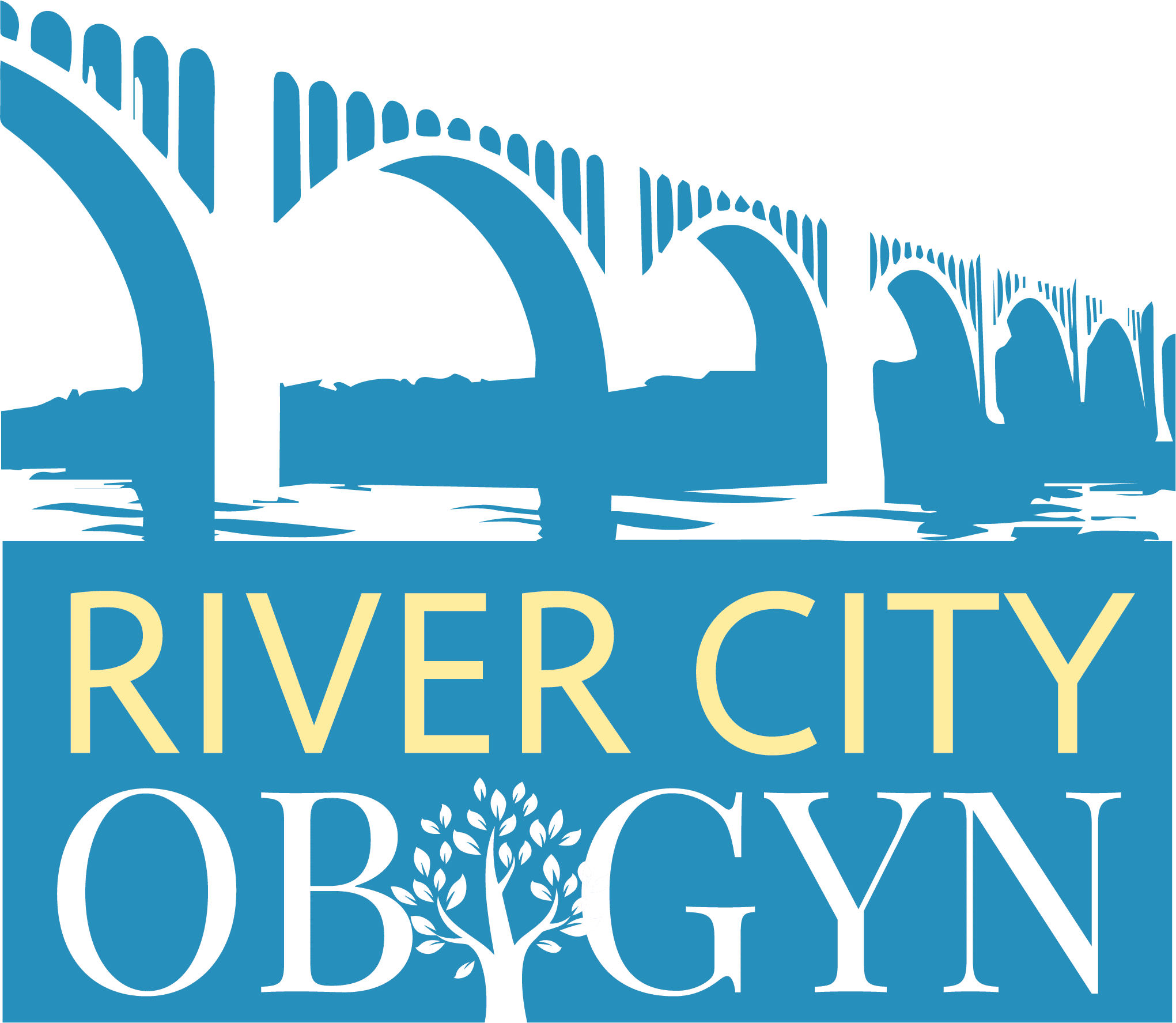
Your postpartum symptoms will vary according to the type of delivery you had (vaginal or cesarean). Other factors that may affect your symptoms include whether or not this is your first baby, and your general health and fitness before and during your pregnancy. Dr. Christopher Paoloni of River City Ob/Gyn shares an overview of postpartum recovery for your best experience and health.
Symptoms During Postpartum
Some of the usual symptoms that occur during postpartum recovery are:
Vaginal bleeding – Be prepared with plenty of absorbent pads, NO TAMPONS. Your flow may continue off and on for up to six weeks after birth.
Abdominal cramps – Your uterus may take up to six weeks to return to normal size. As the uterus is shrinking it causes cramping. Over the counter pain relievers may reduce symptoms, but always get medication approved by your doctor.
Perineal Discomfort – If you had a laceration repair or a tear, it is important to keep the area clean. Cold packs or warm sitz baths are beneficial for pain relief. A local anesthetic spray or ointment will offer temporary relief as well. Kegel (pelvic floor) exercises will encourage circulation, which will speed up the healing process.
Pain with C-section incision. Your doctor will prescribe pain relievers for a few days. If pain continues discuss with your doctor. Avoid heavy lifting the first few weeks after your c-section.
Problems with urination. You might find you have trouble urinating the first few days after delivery. Drink plenty of fluids. Pouring warm water over the perineal area or a warm sitz bath will relax pelvic floor muscles which may stimulate the urge to urinate.
Constipation. Your first bowel movement after delivery may take awhile (don’t force it). Drink plenty of fluids and consume foods that are high in fiber such as; whole grains, fresh fruit and vegetables. Take brief walks and continue with your Kegel exercises. Ask your doctor about the use of stool softeners and avoid straining to have a bowel movement.
Hemorrhoids. The process of pushing a baby out can create hemorrhoids which are varicose veins of the rectum. Frequent sitz baths as well as topical anesthetics and suppositories are helpful. If unable to use a sitz bath, hot or cold compresses will offer relief.
Sore Breast and Leaking Milk. A few days after delivery your breast may become firm, swollen and tender. This is called engorgement. To alleviate this discomfort you may try nursing, a breast pump, using a warm wash cloth or a warm shower to help express milk. If you are not breastfeeding, wear a supportive firm bra such a sports bra to help reduce the production of milk.
Mood Changes. Within a few weeks of your baby’s birth, the hormones that sustained the pregnancy decrease. This fluctuation of hormones may usher in feelings referred to as the “baby blues”. These emotions may come on suddenly and bring on feelings of sadness, episodes of restlessness, anxiety and crying. As a rule, these feelings should fade in a few weeks. In the meantime here are a few things that might lift you mood:
- Request help from your partner, family and friends. Don’t try to do it alone.
- Do something nice for yourself.
- Take a break from the baby for a short period of time to recharge.
- Dinner and a movie can lift your mood even if you don’t leave the home.
- Get dressed. This might not sound like a lot, but spending a little extra time on yourself may make you feel good.
- Leave the house. A change of scenery can improve your state of mind. Take your baby to the park or on a walk and visit with friends. Swap some funny stories with other new moms, laughing is good for the soul.
- Healthy snacking. Sometimes new moms are so involved with baby care they forget to feed themselves. Drops in blood sugar can make you feel tired and irritable. Keep yourself in balance by healthy snacking such as: ready cut veggies, fresh fruit, dry cereal and trail mix, and if you are craving a chocolate bare… then have it, just not too often.
Postpartum Checkup
River City Ob/Gyn will see you for your postpartum checkup in six weeks. During this visit your we will check your:
- Blood pressure
- Weight
- Condition of Vagina, cervix and uterus
- Laceration repair or cesarean section incision
This appointment provides an opportunity to discuss any questions or concerns you have about birth control options and losing additional pregnancy weight. We encourage you to speak candidly about anything that may be bothering you physically and mentally. If you have any questions during your postpartum recovery, please don’t hesitate to call (804) 362-0808.
